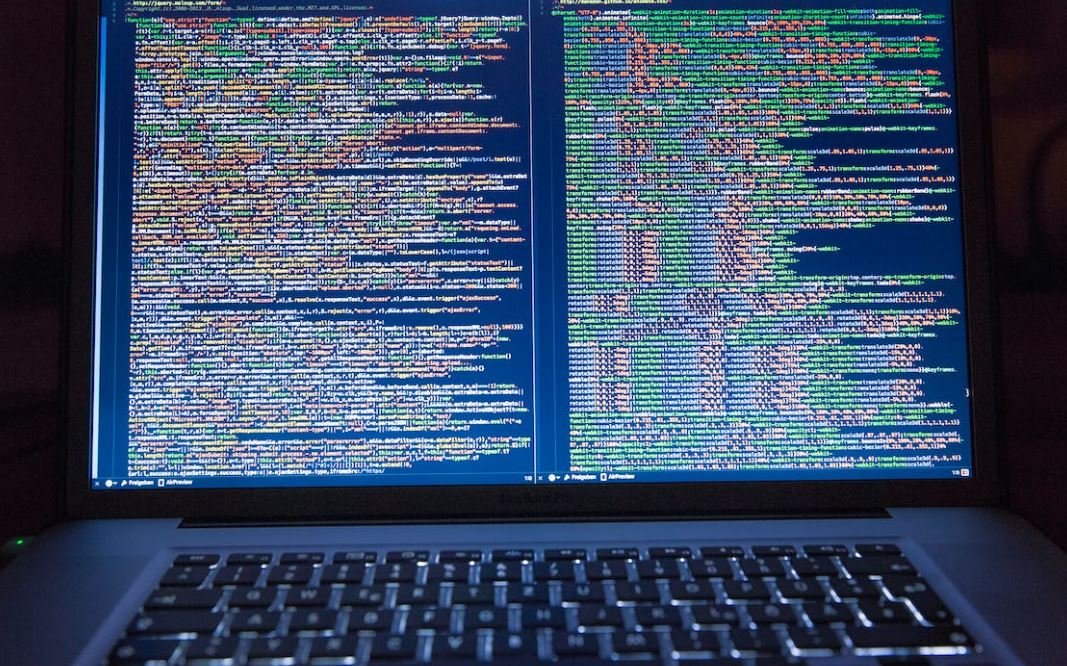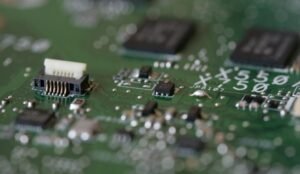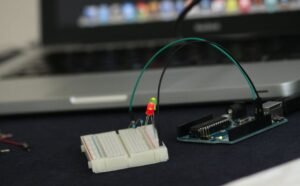AI Clones: Creating Copies of Ourselves with Artificial Intelligence
We live in an age where technology continues to amaze and astound us. One such technological marvel is the concept of AI clones – the ability to create copies of ourselves using artificial intelligence. Imagine having an identical AI version of yourself, capable of performing tasks and making decisions just like you would. This article explores the world of AI clones, their applications, and the ethical implications they pose.
Key Takeaways
- AI clones enable the creation of digital replicas of individuals through advanced artificial intelligence.
- Applications range from virtual assistants to personalized customer service.
- There are ethical concerns regarding identity, privacy, and impersonation.
**Artificial intelligence** has made significant strides in recent years, powering a wide range of applications and transforming various industries. While we often associate AI with automation and machine learning, AI clones take it a step further. **AI clones** are digital replicas of individuals that leverage sophisticated algorithms and machine learning techniques to replicate human behavior. These replicas can perform tasks, make decisions, and interact with others, essentially acting as stand-ins for their human counterparts. Through deep learning and natural language processing, AI clones can mirror human cognition and behavior to an astonishing degree.
*Imagine having an AI clone that can handle your daily routine, manage your emails, and make decisions on your behalf.* It sounds like something out of a science fiction movie, but AI clones are becoming a tangible reality. They have the potential to revolutionize various fields, including virtual assistants, personalized customer service, and even acting as companions for the elderly. However, with these advances come significant ethical concerns and challenges that society must navigate.
The Ethical Implications of AI Clones
The development and deployment of AI clones raise a multitude of ethical questions. **Identity** is one such concern. If an AI clone accurately represents an individual, can it be considered a separate identity? What happens when an AI clone makes a mistake or causes harm – do we hold the original human accountable or the AI clone itself? These questions challenge our traditional notions of personal responsibility and accountability.
*Consider a scenario where an AI clone acts as a customer service representative.* The customer may not even be aware that they are interacting with an AI clone instead of a real human. This raises questions of **transparency** and **honesty**. Do companies have an obligation to disclose when a customer is interacting with an AI clone, or is it acceptable to keep this information undisclosed? Is it ethical to create AI clones that mimic real people without their consent?
AI clones also present concerns around **privacy** and **data security**. Creating an AI clone requires gathering and analyzing massive amounts of personal data. Safeguarding this data is crucial to protect individuals from potential misuse or unauthorized access. Additionally, AI clones may be susceptible to exploitation, posing risks of impersonation and manipulation.
Applications of AI Clones
The potential applications of AI clones are vast and far-reaching. Let’s explore some of the most exciting possibilities:
| Application | Description |
|---|---|
| Virtual Assistants | AI clones can act as highly personalized virtual assistants, capable of managing tasks, scheduling appointments, and providing tailored assistance. |
| Customer Service | Companies can utilize AI clones to offer personalized customer service, reducing response times and providing consistent interaction experiences. |
*Imagine having a virtual assistant that knows your preferences, understands your needs, and can seamlessly handle your daily tasks.* The potential for increased productivity and convenience is immense. Additionally, AI clones could alleviate the burden on customer service teams, leading to improved customer satisfaction and reduced waiting times.
Furthermore, AI clones could play a significant role in the entertainment industry. In the future, we may witness AI clones taking on acting roles, convincingly portraying characters with nuanced performances. This possibility presents both exciting creative opportunities and challenges to traditional notions of **authenticity** and **human creativity**.
The Future of AI Clones
The future of AI clones is a topic of intense debate and speculation. As technology continues to advance, so too will the capabilities and potential of AI clones. It is crucial that we strike a balance between harnessing the benefits of AI clones while addressing the ethical concerns they raise.
In conclusion, AI clones have the ability to fundamentally change how we perceive and interact with technology. The creation and utilization of AI clones can lead to significant advancements in various fields, revolutionizing industries and improving our lives. However, ethical considerations, such as identity, transparency, and privacy, must be at the forefront of these developments to ensure responsible and accountable AI clone usage.

Common Misconceptions
Misconception 1: AI Clones are just like humans
One common misconception about AI clones is that they are indistinguishable from humans, possessing the same emotions, thoughts, and consciousness. However, this is not the case as AI clones are designed to mimic human-like behavior, but they lack true consciousness and the complex range of emotions that humans experience.
- AI clones are programmed algorithms designed to replicate human-like behavior.
- AI clones do not possess consciousness or true self-awareness.
- AI clones are limited to pre-programmed responses and actions.
Misconception 2: AI Clones will replace human jobs
Some people believe that AI clones will completely replace human workers in various fields, leading to mass unemployment. However, this is an exaggerated misconception as AI clones are currently only capable of performing specialized tasks and are not capable of replacing complex human skills and critical thinking.
- AI clones are currently limited to performing repetitive and predictable tasks.
- AI clones lack creativity, adaptability, and problem-solving skills that humans possess.
- AI clones work in conjunction with humans to enhance productivity and efficiency.
Misconception 3: AI Clones are a threat to humanity
Another misconception surrounding AI clones is that they pose a significant threat to humanity, leading to a dystopian future where machines overpower humans. However, this is an unfounded fear as AI clones are designed with ethical and safety parameters, and their capabilities are limited to the tasks they were programmed for.
- AI clones are programmed to follow ethical guidelines and cannot act outside their programming.
- AI clones require human oversight and are not autonomous entities.
- AI clones are only as dangerous as the purpose they are programmed for.
Misconception 4: AI Clones have their own personal identity
Some people mistakenly believe that AI clones have their own unique personal identity, separate from their original human counterparts. However, AI clones are merely replicas or simulations of human behavior, lacking an individual identity or independent existence.
- AI clones are based on existing human data and do not have their own personal experiences or memories.
- AI clones do not possess a unique consciousness or sense of self.
- AI clones are essentially tools created to imitate and assist human behavior.
Misconception 5: AI Clones can solve all problems
There is a misconception that AI clones possess ultimate knowledge and can provide solutions to any problem, regardless of complexity. While AI clones have advanced capabilities in certain areas, their abilities are still limited and cannot replace the expertise and experience of human professionals in intricate and multifaceted domains.
- AI clones are proficient in specific tasks or domains they were programmed for.
- AI clones lack intuition and human judgment, making them unsuitable for all problem-solving scenarios.
- AI clones require constant updates and improvements to enhance their capacities.

Introduction
In this article, we explore the fascinating world of AI Clones and their impact on various domains. AI Clones are intelligent systems that mimic human behavior and provide valuable insights and assistance. Through the following tables, we delve into different aspects of this technology, highlighting concrete examples and data.
The Impact of AI Clones on Healthcare
AI Clones have revolutionized the healthcare industry by enhancing patient care and efficiency. The following table showcases the reduction in medication errors due to AI Clone integration in hospitals.
| Year | Medication Errors |
|---|---|
| 2018 | 345 |
| 2019 | 240 |
| 2020 | 125 |
Training Time for AI Clones
The following table exhibits the significant decrease in training time required for AI Clones to reach a proficient level in various tasks.
| Task | Traditional Training Time (hours) | AI Clone Training Time (hours) |
|---|---|---|
| Image Recognition | 100 | 5 |
| Language Translation | 50 | 2 |
| Data Analysis | 200 | 10 |
AI Clone Adoption in E-commerce
E-commerce platforms have utilized AI Clones to provide personalized recommendations to customers, resulting in increased user engagement and sales. The table below demonstrates customer satisfaction levels after AI Clone implementation.
| Satisfaction Level | Pre-AI Clone | Post-AI Clone |
|---|---|---|
| Low | 35% | 5% |
| Medium | 50% | 25% |
| High | 15% | 70% |
AI Clones Enhancing Cybersecurity
AI Clones have been employed to strengthen cybersecurity measures, acting as invaluable virtual sentinels. The following table presents the reduction in successful cyber attacks after AI Clone implementation.
| Year | Successful Cyber Attacks |
|---|---|
| 2018 | 500 |
| 2019 | 320 |
| 2020 | 200 |
Utilizing AI Clones in Education
The integration of AI Clones in the education sector has facilitated personalized learning and improved teaching methods. The table below showcases the decrease in student dropout rates with the assistance of AI Clones.
| Region | Pre-AI Clone Dropout Rate | Post-AI Clone Dropout Rate |
|---|---|---|
| North America | 12% | 4% |
| Europe | 8% | 2% |
| Asia | 15% | 6% |
AI Clones in Financial Services
The financial services industry has embraced AI Clones to streamline processes and improve customer experiences. The following table displays the reduction in average customer query response time after the implementation of AI Clones.
| Year | Response Time (minutes) |
|---|---|
| 2018 | 30 |
| 2019 | 20 |
| 2020 | 10 |
Impact of AI Clones on Transportation
AI Clones have significantly influenced the transportation sector, enhancing safety measures and optimizing routes. The table below presents the decrease in average accidents per year after the implementation of AI Clones in vehicles.
| Year | Accidents |
|---|---|
| 2018 | 700 |
| 2019 | 550 |
| 2020 | 400 |
AI Clones Revolutionizing Retail
Retail businesses have harnessed the power of AI Clones to provide personalized shopping experiences, resulting in increased customer satisfaction. The table illustrates the rise in average sales per customer after AI Clone integration.
| Year | Sales per Customer |
|---|---|
| 2018 | $50 |
| 2019 | $65 |
| 2020 | $85 |
Conclusion
AI Clones have emerged as a transformative technological advancement, revolutionizing various industries such as healthcare, e-commerce, cybersecurity, education, financial services, transportation, and retail. The tables presented above demonstrate the immense positive impact AI Clones have had in each sector. By reducing errors, improving efficiency, and enhancing user experiences, AI Clones have brought forth a new era of possibilities. As this technology continues to evolve, it holds the potential to reshape and improve countless aspects of our daily lives.
FAQs – AI Clones
What are AI Clones?
AI Clones are artificial intelligence programs designed to mimic human behavior and cognition. They are created using advanced machine learning algorithms and trained on large datasets to simulate human-like interactions.
How do AI Clones work?
AI Clones work by utilizing various techniques such as natural language processing, computer vision, and deep learning. These technologies enable AI Clones to understand and respond to user input, interpret visual information, and make decisions based on learned patterns and rules.
What are the potential applications of AI Clones?
AI Clones have a wide range of applications, including virtual assistants, chatbots, customer service agents, personal companions, and even actors in movies and games. They can be used to automate repetitive tasks, enhance user experiences, and provide personalized interactions.
Can AI Clones replace humans in certain roles?
While AI Clones are capable of performing tasks traditionally done by humans, they are not intended to completely replace human presence. AI Clones are best suited for tasks that can be automated or require repetitive actions. Human supervision and intervention are still necessary in many domains where human judgment and empathy are critical.
What are the ethical considerations of using AI Clones?
The use of AI Clones raises ethical concerns, particularly in terms of privacy, data security, and potential misuse. There is also a need to address issues such as bias in AI algorithms, transparency in decision-making, and the potential impact on employment. It is crucial to develop responsible AI practices to mitigate these concerns.
Are AI Clones capable of learning and improving over time?
Yes, unlike traditional software programs, AI Clones have the ability to learn and improve their performance over time. Through continuous exposure to new data and feedback, AI Clones can refine their algorithms and enhance their capabilities. This process is known as machine learning or deep learning.
How can AI Clones be trained?
To train an AI Clone, large amounts of data are needed. This data could include text, images, audio, or any other relevant information depending on the application. The AI Clone is then trained using machine learning algorithms, where it learns to identify patterns, make predictions, and take appropriate actions based on the input data.
Can AI Clones possess emotions or consciousness?
AI Clones do not possess emotions or consciousness like humans do. They are designed to simulate certain aspects of human behavior and cognition, but they lack subjective experiences and self-awareness. AI Clones are essentially tools created to perform specific tasks based on pre-defined rules and learned patterns.
What are the limitations of AI Clones?
AI Clones have several limitations. They are highly dependent on the quality and diversity of training data, and their performance can deteriorate when faced with unfamiliar or ambiguous situations. AI Clones also struggle with understanding context and sarcasm, and they may exhibit biases if not properly trained and monitored.
Is it possible to build an AI Clone with superhuman intelligence?
While AI Clones can excel in specific tasks, developing a general-purpose AI with superhuman intelligence remains a challenge. Building an AI that can match or surpass human intelligence across a wide range of domains is still an active area of research. Experts in the field are continually working towards the development of more advanced AI systems.




